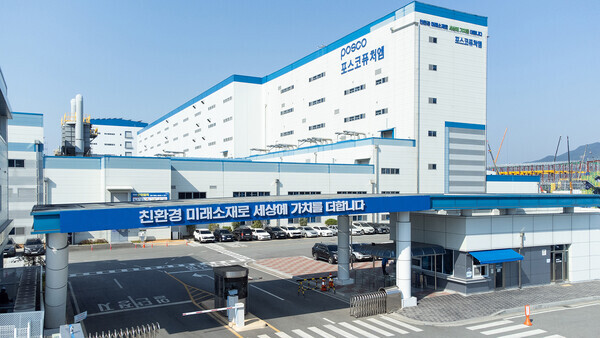
Seoul, South Korea – Posco Future M, a leading South Korean battery materials company, has secured a significant supply of domestically produced lithium hydroxide, a crucial component in electric vehicle batteries. This strategic move is aimed at strengthening the company's position in the lucrative US market, particularly in light of the US Inflation Reduction Act (IRA) which imposes stricter sourcing requirements.
In a deal announced on December 6th, Posco Future M signed a purchase agreement with Posco Pilbara Lithium Solutions for 20,000 metric tons of lithium hydroxide. This quantity is sufficient to produce cathode materials for approximately 460,000 electric vehicles. The lithium hydroxide sourced from this agreement will be exclusively used for the production of cathode materials destined for the US market.
Posco Pilbara Lithium Solutions, a joint venture between Posco Holdings and Pilbara Minerals, has recently completed the construction of its second plant, significantly increasing its annual production capacity to 43,000 metric tons of lithium hydroxide. The raw material for this lithium hydroxide is sourced from the Pilgangoora lithium mine in Australia, in which Posco Holdings holds a 4.75% stake.
The IRA's critical mineral provisions, which came into effect in 2022, have made it increasingly challenging for companies to qualify for tax credits if their electric vehicles contain batteries made with minerals sourced from countries deemed as foreign entities of concern (FEOC), such as China. By securing a domestic supply of lithium hydroxide, Posco Future M is positioning itself to meet the growing demand for batteries in the US while complying with the IRA's stringent sourcing requirements.
"By securing a stable supply of lithium hydroxide from a non-FEOC source, we are confident that we can further strengthen our competitiveness in the US market," said a spokesperson for Posco Future M. "This strategic move aligns with our broader goal of establishing a robust and sustainable supply chain for electric vehicle batteries."
[Copyright (c) Global Economic Times. All Rights Reserved.]






























